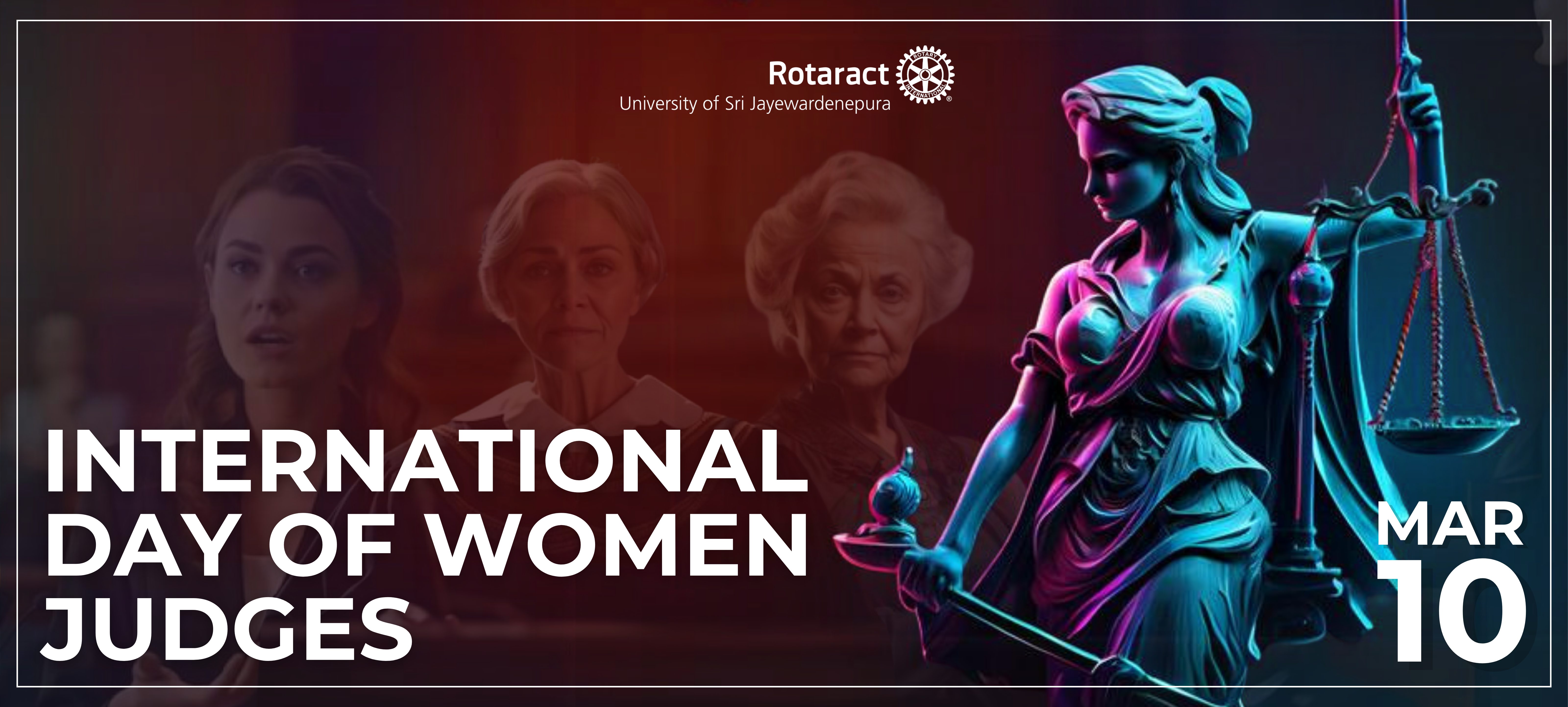In the pursuit of justice, the representation of women in the judiciary plays a pivotal role. Despite increased engagement in public life, women remain significantly underrepresented in decision-making positions within the judicial system. However, the International Day of Women Judges, declared by the United Nations General Assembly on March 10th, serves as a beacon of hope and a call to action to address this imbalance.
Women judges bring unique perspectives and experiences to the bench, enhancing the legitimacy of courts and signaling accessibility to justice for all. Their presence not only ensures that the legal system reflects the diversity of society but also inspires future generations of female judges, motivating them to pursue their goals within the legal profession.
The Global Judicial Integrity Network, established by the United Nations Office on Drugs and Crime (UNODC), provides a platform for female judges to share experiences, fostering solidarity and learning. Through initiatives like these, women in the judiciary are breaking barriers and paving the way for a more inclusive and representative legal system.
In popular culture, fictional portrayals of women in the legal profession have also made significant contributions to the discourse on empowerment and representation. Characters like Jessica Pearson, Rachel Zane, and Samantha Wheeler in the TV series “Suits” have captivated audiences with their intelligence, resilience, and determination within the legal world.
Jessica Pearson, portrayed as the formidable managing partner of the law firm, embodies strength and authority, breaking barriers as a woman of color in a leadership position. Rachel Zane, a determined paralegal turned attorney, navigates challenges with grace and tenacity, serving as a role model for aspiring female lawyers. Additionally, Samantha Wheeler, an accomplished attorney, demonstrates competence and professionalism while navigating complex legal matters. These fictional characters not only entertain but also inspire viewers with their portrayal of women excelling in the legal profession, reinforcing the importance of representation and empowerment in real-world settings.
In the pursuit of justice and equality, the role of women in the legal profession cannot be understated. As we commemorate the International Day for Women Judges, it’s essential to recognize and celebrate the invaluable contributions of women in shaping legal systems worldwide. This day serves as a reminder of the progress made, the challenges overcome, and the ongoing journey towards a more equitable and just society.
Empowering Women in the Legal Profession:
Historically, the legal profession has been predominantly male-dominated, with women facing numerous barriers to entry and advancement. However, thanks to the relentless efforts of trailblazing women, significant strides have been made in breaking down these barriers. Today, women serve as judges in courts around the globe, bringing diverse perspectives and experiences to the bench.
Women judges play a crucial role in promoting fairness, upholding the rule of law, and safeguarding human rights. Their presence ensures that the judiciary reflects the diversity of society and inspires confidence in the legal system. Moreover, women judges serve as role models for future generations of aspiring legal professionals, paving the way for greater gender parity in the legal profession.
Mentorship Programs have played a pivotal role in supporting and empowering women in the legal profession. For example, Sarah, a fictional seasoned attorney, mentors junior female colleagues, providing guidance on navigating challenging cases and career advancement opportunities. Through Sarah’s mentorship, young women like Emily gain valuable insights, build confidence, and establish professional networks essential for their success in the legal field.
Leadership Opportunities are crucial for empowering women in the legal profession. Rachel’s fictional appointment as the managing partner of a prestigious law firm demonstrates progress in promoting women to leadership roles. By breaking barriers and shattering stereotypes, Rachel inspires other women to pursue leadership positions within the legal profession. Her leadership fosters a more inclusive and diverse workplace culture, where women’s voices are heard and valued.
Advocacy and Support Networks play a vital role in championing the rights and advancement of women in the legal profession. The Women Lawyers Association, led by fictional activists like Maya, advocates for policies that promote gender equality and address systemic barriers to women’s advancement. Through advocacy efforts, Maya and her fictional colleagues push for changes such as pay equity, parental leave policies, and flexible work arrangements, creating a more supportive environment for women in the legal profession.
Challenges and Progress:
Gender Bias and Discrimination continue to pose challenges for women in the legal profession. For instance, Jessica, a fictional talented attorney, faces implicit bias and skepticism from clients and colleagues due to her gender. Despite her expertise and qualifications, Jessica encounters barriers to career advancement and opportunities for professional growth. Efforts to address gender bias and discrimination through diversity training and awareness campaigns are essential for creating a more equitable workplace for women like Jessica.
Work-Life Balance remains a significant challenge for many women in the legal profession. Jennifer, a fictional dedicated prosecutor and mother of two, struggles to juggle the demands of her caseload with family responsibilities. Long hours and unpredictable schedules make it challenging for Jennifer to achieve work-life balance, leading to burnout and stress. Implementing supportive policies such as telecommuting options and parental leave benefits can help women like Jennifer better manage their professional and personal lives.
Underrepresentation in Leadership Roles persists despite advancements in women’s representation in the legal profession. Emily, a fictional talented litigator, aspires to become a partner at her law firm but faces barriers to advancement due to the lack of gender diversity in leadership positions. Breaking the glass ceiling requires proactive efforts to promote women into leadership roles, such as mentorship programs, leadership training initiatives, and diversity quotas in partnership promotions. By addressing systemic barriers, the legal profession can ensure that women like Emily have equal opportunities to rise to leadership positions and contribute their talents to the field.
Despite progress, women in the legal profession continue to face challenges such as gender bias, discrimination, and unequal access to opportunities. Stereotypes and societal expectations often hinder their advancement and recognition within the judiciary. Additionally, women judges may encounter barriers related to work-life balance, particularly when balancing judicial responsibilities with caregiving duties.
However, it’s crucial to acknowledge the resilience and determination of women judges in overcoming these obstacles. Through advocacy, mentorship, and solidarity, women in the legal profession are breaking down barriers and reshaping the landscape of justice. Initiatives such as mentorship programs, diversity training, and gender-sensitive policies are essential in promoting inclusivity and addressing systemic inequalities.
As we celebrate the International Day for Women Judges, it’s imperative to reaffirm our commitment to gender equality and justice. Empowering women in the legal profession requires collective action from governments, legal institutions, civil society, and the broader community. By advocating for equal representation, addressing gender-based discrimination, and promoting diversity and inclusion, we can create a more equitable and just society for all.
Furthermore, investing in the education and training of women in law, providing mentorship and networking opportunities, and implementing policies that support work-life balance are essential steps towards achieving gender parity in the judiciary. By harnessing the talents and perspectives of women judges, we can strengthen the rule of law, promote access to justice, and advance human rights globally.
Women judges contribute to greater accountability and effectiveness in the criminal justice system. Their diverse perspectives help strengthen judicial systems, disrupt networks of collusion, and combat corruption. Additionally, women’s representation in law enforcement and judicial institutions has been linked to more victim-centered responses to crime, promoting fairness and equality before the law.
To achieve sustainable development, peace, and democracy, active participation of women at all levels of decision-making is essential. Investing in women’s advancement and leadership within the judiciary is not only a matter of gender equality but also a fundamental step towards ensuring that justice is served equitably for all members of society.
As we mark the International Day of Women Judges, let us reaffirm our commitment to developing and implementing strategies that promote the full and equal participation of women in judicial justice systems. Join us in celebrating the progress made and raising awareness about the challenges ahead through the campaign “Women in Justice, Women for Justice.” Together, we can build a future where justice knows no gender boundaries, and equality prevails before the law.
Written by: Rtr. Sathmi Dinanja
Graphic design by: Rtr. Nisal Dilmith


0 Comments